Am I Trans Quiz: Nature, Nurture, or Netflix?
○ DISCLAIMER
The quizzes and content on this website are designed for entertainment purposes only and should not be used as a basis for making personal decisions about your sexuality, gender identity, or any other life choices. These quizzes are not diagnostic tools and cannot determine your identity or orientation. If you're questioning your identity or need support, we strongly encourage you to seek guidance from qualified LGBTQ+ friendly professionals or counselors. Remember that your journey of self-discovery is unique and personal to you.
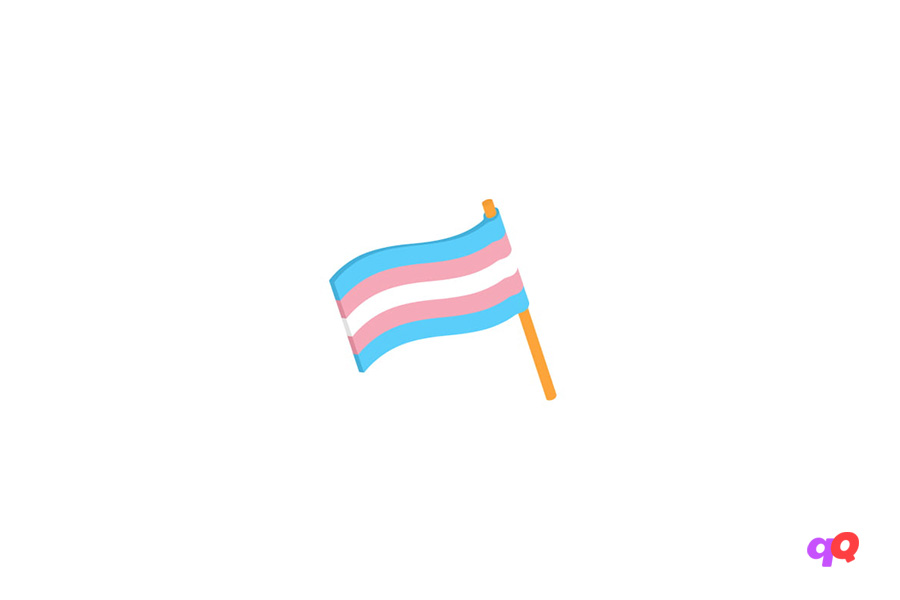
Imagine standing before a mirror, and your reflection seems… not quite yours. Not in terms of appearance – rather, as if there’s an invisible glass between you and your reflection that distorts not your facial features, but your very essence. If this feeling is familiar to you, perhaps you’ve already begun one of life’s most important journeys – the journey to understanding your gender identity.
First, What Does the Word “Trans” Actually Mean?
The word “trans” is short for “transgender,” derived from the Latin prefix “trans,” meaning “through” or “beyond.” In the context of gender identity, this means that a person’s internal sense of their gender differs from the sex assigned at birth.
But let’s dig deeper. Transgender identity isn’t a monolith, but an entire spectrum of experience. This could be a trans woman (a person assigned male at birth who identifies as a woman) or a trans man (vice versa). These could be non-binary people who don’t fit into the binary “man/woman” system. These could be genderfluid individuals whose gender identity changes over time.
It’s important to understand: being trans is not an illness, not a phase, and not a choice. It’s a fundamental part of a person’s identity, as innate as eye color or dominant hand. The World Health Organization has officially removed transgender identity from the list of mental disorders, recognizing it as a variant of normal human diversity.
What’s the Essence of This Quiz?
The “Am I Trans?” quiz isn’t a magic ball that will give you a definitive answer. Think of it as a compass in the fog of self-discovery. It’s designed to help you structure your thoughts, feelings, and experiences that may seem chaotic or frightening.
The quiz’s purpose is to create a safe space for exploration. It asks questions you might be afraid to ask yourself. It helps you see patterns in your experiences that individually might seem insignificant, but together form a more complete picture.
Important: the quiz results are not a diagnosis or a verdict. They’re a starting point for further exploration, a reason for reflection, and perhaps for reaching out to a gender specialist.
Potential Signs We Explore in the Quiz
Every person is unique, and the transgender experience manifests differently. The quiz explores a wide spectrum of experiences – from bodily sensations to social interactions, from internal thoughts to emotional responses. Let’s examine the main categories of signs that might indicate a mismatch between your internal identity and the sex assigned at birth.
Gender Dysphoria: When the Body Feels Foreign
Gender dysphoria is the discomfort or distress a person experiences due to a mismatch between their gender identity and their body or social role. This can manifest as:
- Discomfort with one’s primary or secondary sexual characteristics
- Desire to get rid of them or acquire characteristics of another sex
- Feeling of “wrongness” about one’s body
- Avoiding mirrors or photographs
But not all trans people experience dysphoria, and that’s normal. Some experience more social dysphoria (discomfort from how others perceive them) than bodily dysphoria.
Gender Euphoria: The Joy of Being Yourself
If dysphoria is shadow, then euphoria is light. Gender euphoria is the feeling of rightness, joy, and wholeness when you’re perceived in accordance with your true identity. This could be:
- A rush of happiness when addressed with the correct pronouns
- The feeling of “finally, I’m home” when trying on clothes of another gender
- Joy from changes in appearance that bring you closer to your desired image
- A sense of rightness when using a new name
Social Aspects: How We Interact With the World
Our gender identity manifests not only internally, but in how we exist in society:
- Discomfort with gender roles imposed by society
- Desire for others to perceive you differently
- Feeling of “playing” or “pretending” in your current gender role
- Envy of people of another gender that’s not romantic or sexual in nature
Internal Experiences: Dialogue With Yourself
Often the most important signs are hidden in our thoughts and fantasies:
- Constant thoughts about what life would be like in another gender
- Dreams where you’re a different sex
- Creating characters of another gender in games and identifying with them
- Feeling that you’re “stuck” in the wrong life
Why Exploring Your Identity Matters
Self-knowledge isn’t a luxury, but a necessity for a fulfilling life. When it comes to gender identity, the stakes are particularly high. Living in discord with your true nature can lead to depression, anxiety, feelings of emptiness and being lost.
Exploring your identity gives freedom. Even if you conclude that you’re cisgender (your identity matches your sex at birth), the journey itself will enrich your understanding of yourself. You’ll learn to better understand your needs, boundaries, and desires.
For those who discover their transgender identity, this knowledge can be the beginning of a new, more authentic life. This doesn’t mean the path will be easy – society is still learning to accept gender diversity. But living in harmony with yourself, even in the face of difficulties, is incomparably better than hiding your true nature.
Remember: your identity is valid regardless of whether you decide to transition (socially, medically, or both), or choose another path. There’s no “right” way to be trans. There’s only your way of being yourself.
Conclusion: Your Journey Is Just Beginning
Imagine a seed that has lain in the earth for years. It always knew it was a tree seed, even when others mistook it for a stone. The “Am I Trans?” quiz is the first ray of light breaking through the soil. It won’t turn you into a tree instantly, but it will help you understand that it’s time to start growing.
Whatever your results, remember: you’ve already shown incredible courage by asking yourself these questions. In a world that often demands we fit into narrow frames, exploring your authentic nature is an act of revolutionary self-love.
Your journey is unique. Your pace is the right pace. Your feelings are valid. And most importantly – you’re not alone. Millions of people around the world are going through or have gone through a similar path. The community awaits you with open arms, ready to support you at every step.
So breathe deeply, be kind to yourself, and remember: the only person who can determine your identity is you. The quiz is just a flashlight in your hands. Where to shine it and where to go – only you decide.
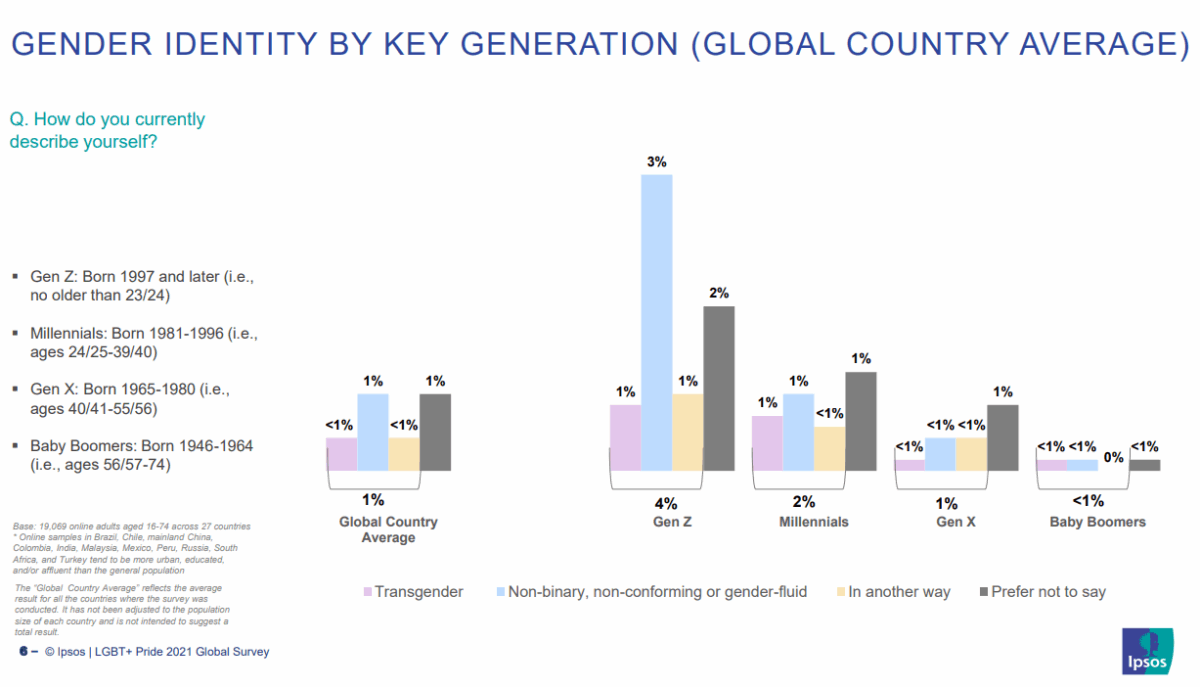
Source: Ipsos
○ Related Quizzes
Questions Overview
- I feel uncomfortable in them
- It's just clothes, I don't give it much thought
- Sometimes I try them on and think about it
- I feel more natural in them
- It's my name, it suits me
- I'd prefer a more neutral option
- Sometimes I think about other options
- It feels foreign to me
- I enjoy them
- I prefer neutral compliments
- It evokes mixed feelings
- I experience discomfort
- I don't see a need for it
- I think about it sometimes
- I often experiment with hairstyles
- I've already made it an important part of my changes
- I imagine myself roughly the same
- I see myself as more androgynous
- The image of the future isn't very clear
- I see myself differently than now
- I prefer traditional ones for my gender
- I'm comfortable with various options
- I experiment with different forms
- I prefer pronouns of another gender
- They're part of me, and that's normal
- Sometimes they make me uncomfortable
- I prefer not to think about them
- I experience strong discomfort
- I recognize myself immediately
- Sometimes I'm surprised
- I often experience discomfort
- I try to avoid such moments
- I don't give it much thought
- I feel most comfortable there
- I'm interested in such places
- I feel relief and calmness
- No, I'm content with my body
- Sometimes I imagine it out of curiosity
- I think about it often
- It's my constant desire
- Curiosity from an outside perspective
- Interest in different experiences
- Strong emotional involvement
- Deep personal resonance
- Fine, it's my voice
- I'd prefer a more neutral sound
- I think about it often
- I experience strong discomfort
- Pleasant memories
- Mixed feelings
- Complex emotions
- Discomfort or alienation
- Nothing special
- A desire to skip this field
- Some tension
- Strong discomfort
- I perceive them naturally
- I have ambivalent feelings
- I experience anxiety
- I feel strong discomfort
- Respect, but detachment
- Deep understanding of some aspects
- Strong interest and empathy
- Closeness and kinship
- Not my style
- I prefer such clothing
- I'm interested in this direction
- I often choose such clothing
- Calmly, as an outside observer
- With interest in different perspectives
- With personal involvement
- With deep personal resonance


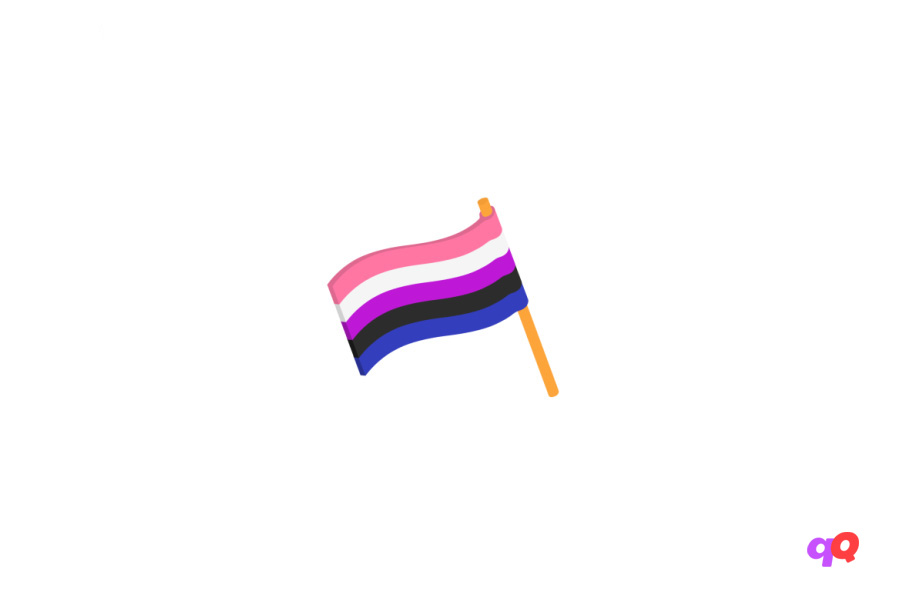
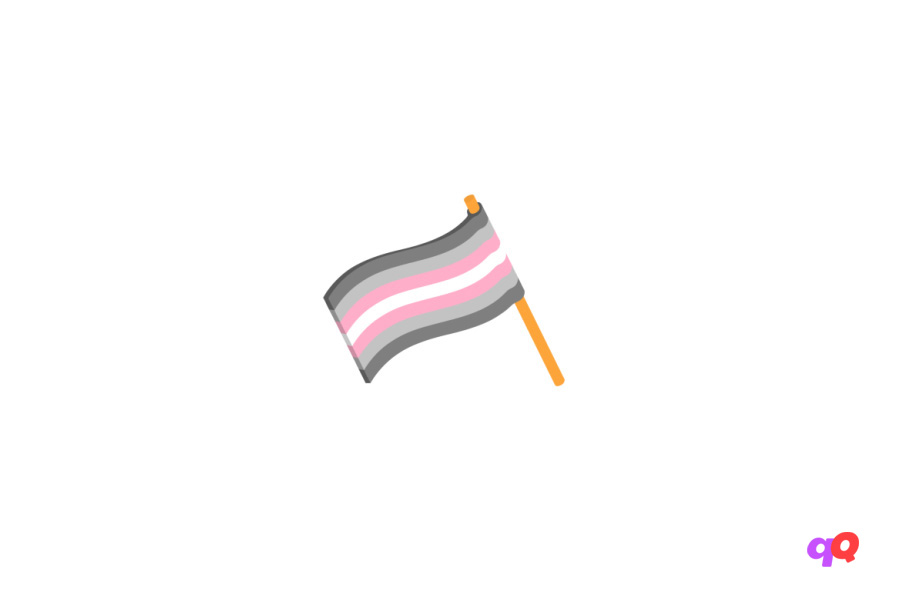
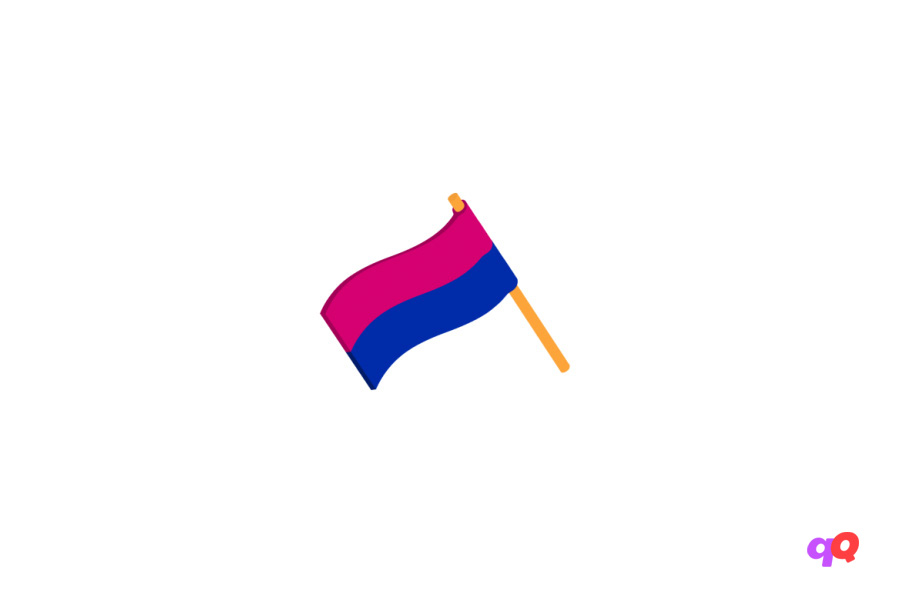
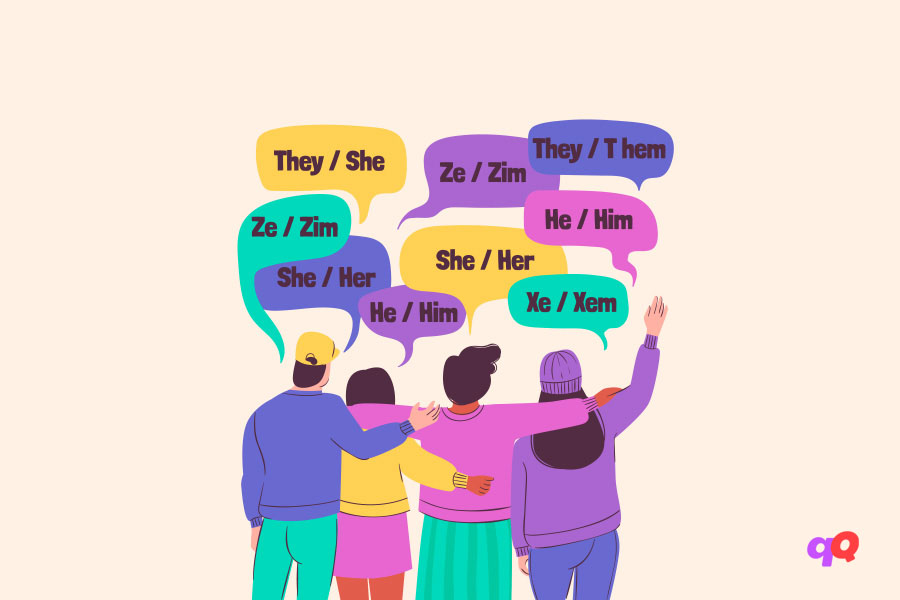

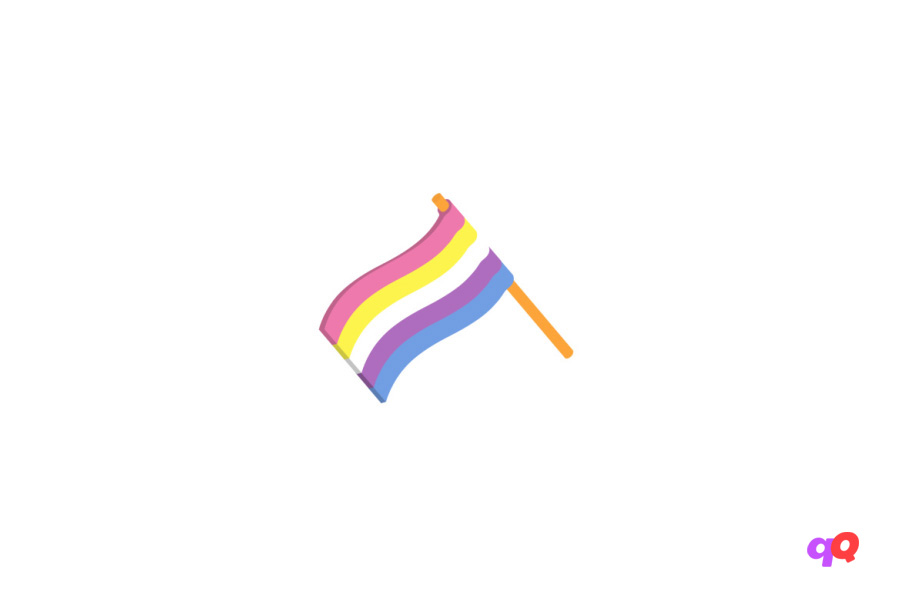
Love ❤️ Petra 💋